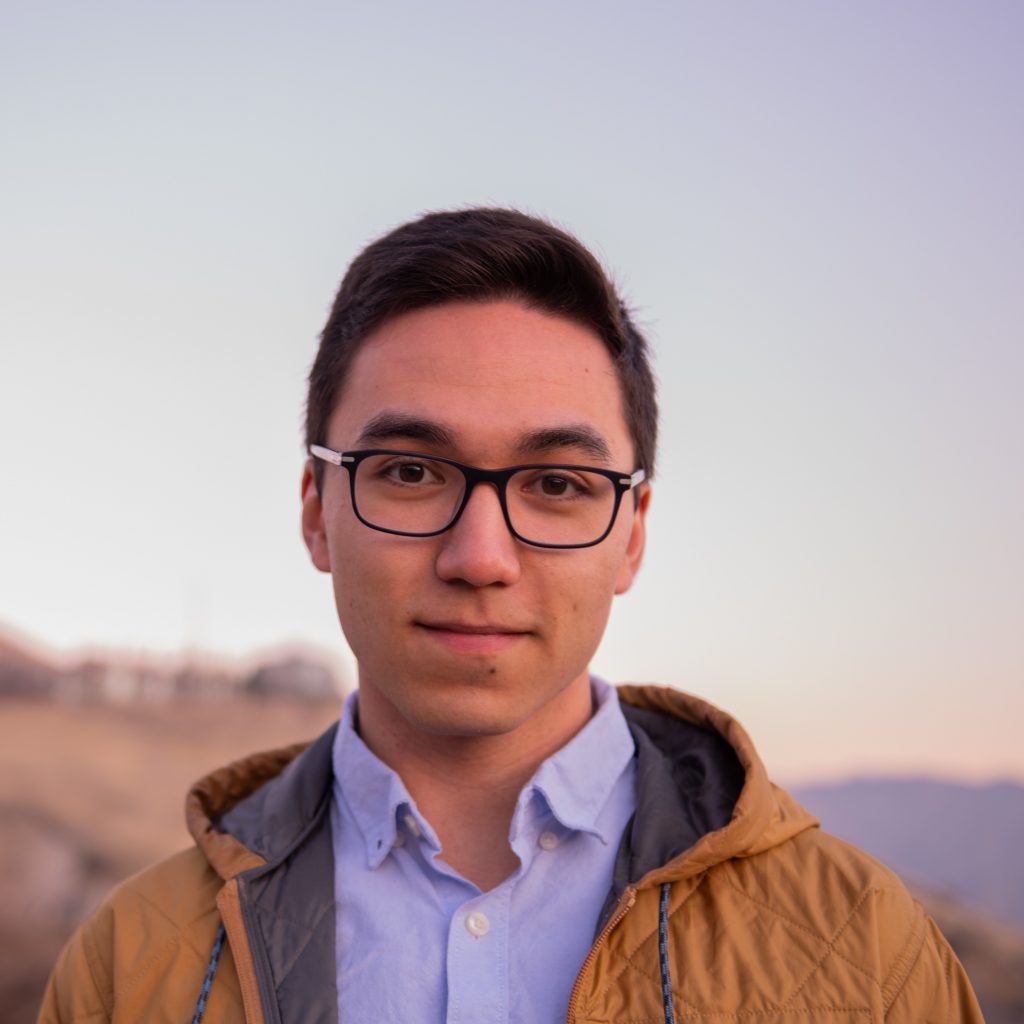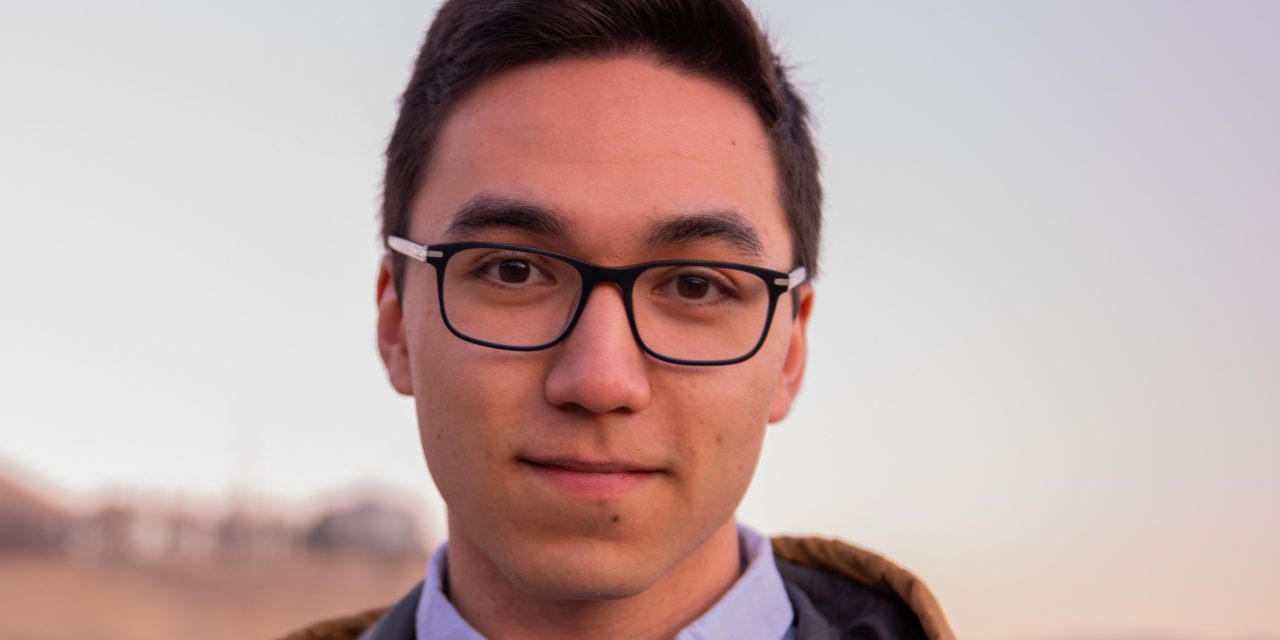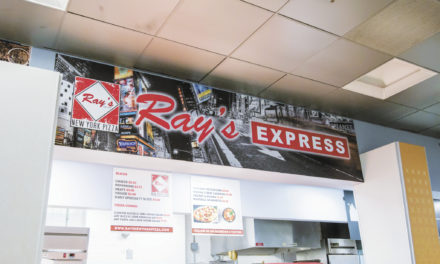The Emory Wheel’s outgoing editor-in-chief (EIC) Isaiah Poritz (21C) is moving on after four years writing for the student newspaper. His time as editor-in-chief (EIC) was shaped — but not defined — by the COVID-19 pandemic.

Courtesy of Isaiah Poritz.
Poritz graduated with a degree in political science from Emory College of Arts and Sciences in December 2021, which allowed him to start a job in journalism this spring. He now reports on intellectual property litigation for Bloomberg Law’s legal reporting team.
Poritz assumed his role as EIC in March 2021. Like many editors at the Wheel, he started out as a contributing writer for the news section as a freshman. He then worked on the social media team, served as assistant news editor, news editor and executive editor before being elected EIC.
While at Emory, Poritz interned at Salt Lake City Weekly in his hometown of Salt Lake City, CBS News, Georgia News Lab, Atlanta Journal-Constitution and Open Secrets.
This transcript has been edited for clarity and length.
Emory Wheel: What would you say is the most valuable thing the Wheel has given you?
Isaiah Poritz: Resilience and developing a thick skin. You’re going to be put in these very uncomfortable positions where you’re going to be writing about issues where even though you know you’re writing the truth and you were doing the correct journalism, people will get mad at what you’re writing about. You need to be able to discern what the fair criticisms are from what the bad actor criticisms are. That is a very important skill, regardless of what you’re going to do.
EW: Which of your Wheel articles are you the most proud of?
IP: I’m most proud of an article I wrote about Emory’s Campus Services Department and alleged workplace malpractice and abuse that happened there. That required a huge amount of reporting. It took many, many months, and I had to go meet sources in weird places because they were afraid of our conversation being overheard or that we’d be seen together.
But, there were a lot of people who were willing to tell me their stories and who were in very, very vulnerable positions. We got a full fledged response from the University. The head of Emory’s Business Administration had to submit a letter response to the Wheel, which we almost never get, and I think that kind of shows the power that those types of stories can have in holding power to account.
EW: What’s your favorite Emory memory?
IP: Some of my best memories were just hanging out in the office during production. It was a lot of fun hanging out with everyone there, and everyone’s going through hell together, and parts of it suck, but you’re really doing the same thing with a bunch of other people.
EW: What inspires you?
IP: I think that one of the most important parts of journalism is holding power to account, as in using the tools of journalism, which is very intensive research and fact finding, getting accounts from people who have experienced things firsthand and shaping that into a narrative.
People in high places can do pretty horrible things. That, in my mind, is one of the best ways that you can keep any type of powerful institution or powerful person accountable to what they say or what they should be doing: through telling stories that are very fact-oriented and very detailed.
EW: What are you reading, watching or listening to right now?
IP: Right now, I’m working my way through “The Unwinding” by George Packer. He’s a New Yorker writer who wrote this really amazing book in 2012 that detailed how American large social institutions have been collapsing and have been reshaping the American political and cultural landscape. That’s actually a perfect example of the type of writing that I think is the best. Individual stories are telling this broader picture.
EW: What was your favorite class or professor at Emory?
IP: I recommend anyone who is interested in journalism or is part of the Wheel take a class with our adviser, Professor Hank Klibanoff. He is the most experienced and knowledgeable professor on journalism that we have at Emory. I took a creative nonfiction writing class with him that was really amazing. He really pushed me to make my stories really detailed, which I think is very important.
I took another class on the history of southern politics with Joseph Crespino that put a lot of southern history, and especially in the context of us being in Atlanta, into context, to a racial, cultural, political lens.
EW: What is your favorite thing to do in Atlanta?
IP: We’d go every weekend with some of my friends to hike somewhere, and we hit a bunch of waterfalls and some other classic trails in northern Georgia. Definitely exploring the nature that’s around Georgia because I think there’s actually quite a lot. Atlanta is really beautiful, especially during the summer.
EW: What advice would you give to future EICs or people who currently write for the Wheel?
IP: For editors-in-chief, it’s important to be confident in the decisions you make. You need to recognize where you’ve gone wrong. But once you make a decision, commit yourself to it, and you’ve got to stay the course, even if you’re going to get some tough feedback on it.
For anybody who’s part of the organization, just have fun with it. Cover the things that you’re most interested in, and it’s going to turn out very well for you.
Oli Turner (she/her) is from Manchester, Massachusetts, majoring in English & Creative Writing and minoring in Rhetoric, Writing, & Information Design. Her work has appeared in Atlanta Magazine, Boston Hassle, and the Manchester Cricket. She co-hosts the Wheel's arts & entertainment podcast, Clifton Culture, which spotlights student artists at Emory. Outside of the Wheel, she serves as Vice President of WMRE, Emory's student-run radio station. When she's not writing, editing, or DJ-ing, you can find her at the nearest DIY show scoping out local live music.




